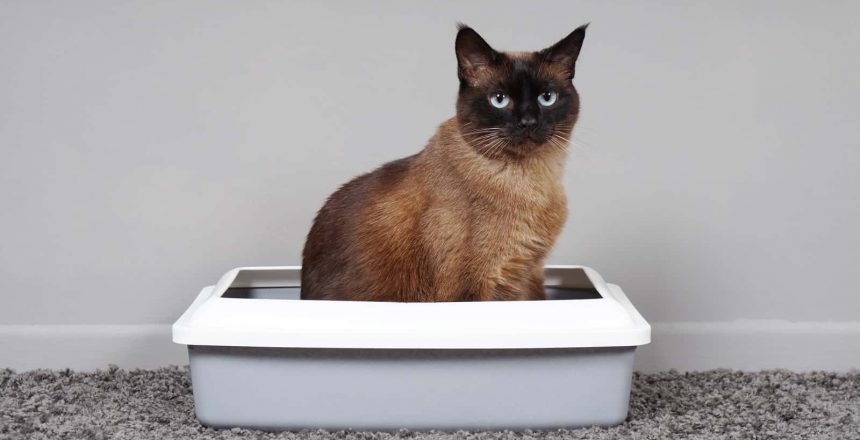If your cat is constipated, you’re undoubtedly worried about them and want to give them some relief. In this article, we will give you the information you need to treat mild constipation at home safely — as well as when you should bring your kitty to see the vet.
Symptoms of Constipation in Cats
Sometimes, it can be difficult to tell if your cat is truly constipated or not. Most cats go both indoors and outdoors and could be relieving themselves in places other than your home litterbox. So, unfortunately, it might not always be possible to tell if they’re not pooping just from sifting their litter.
If you suspect that your cat is constipated, there are some ways that you can tell:
- A tense abdomen
- Stools that are present will be small, hard, and dry
- Painful straining in the litterbox
- Lack of appetite
- Uncomfortable “hunched” posture
Causes of Constipation in Cats
Fighting the cause of constipation can’t be done until it’s identified. Most of the time, the cause is dehydration, but there can be many other reasons for kitty constipation:
- Dehydration – as mentioned, dehydration is the most common cause of constipation
- Over-grooming – if your cat grooms themselves too much, they can over-ingest hair, and this can block their stools
- Fiber intake – having too much or too little (usually too little) fiber in their diet can cause constipation
- Dirty litterbox – cats will avoid a litterbox that is smelly and dirty.
- Pelvic tumors
- Medication side-effects
- Nerve disorder
As you can see, some causes of constipation are more serious than others. If you can’t identify the underlying cause, you should speak to your vet and have your cat examined as treatment will vary between causes.
How to Treat Cat Constipation at Home
Some causes of constipation in cats simply can’t be treated at home. However, if the constipation hasn’t gone on for long, you can try some simple home solutions before taking your cat in to see the vet:
- Increase hydration – your cat may avoid their water dish if it isn’t full or if it is dirty. Always change and clean your cat’s water bowl daily if you suspect constipation due to dehydration.
- Increase movement – cats love sleeping and being lazy, but too much sedentary behavior can cause constipation. The intestinal tract relies on your cat’s movements to help push excrement down the line. Introduce more physical activity to your cat’s daily routine in the form of playtime.
- Improve fiber intake – IAMS research has concluded that optimal fiber levels in cats range from 1.4% to 3.5%. You should investigate that your cat is not taking in too little or too much fiber. In cases of hairballs being the cause, your cat may need more fiber, rather than less.
- Keep the litterbox clean – if you neglect your cat’s litterbox, your cat will neglect it too. Cat’s are much more sensitive to smells than humans are, so if your litterbox smells bad to you, it smells even worse to your kitty.
If you don’t know the cause of your cat’s constipation, or if about four days have gone by for your cat without defecation, you should see a vet right away.
If you’re thinking about boarding your cat with Pet Ponderosa, you can be sure that they will be getting plenty of clean drinking water, high-quality food, and clean litter to use. We treat our feline guests like royalty!


